In the middle of September, Instapundit linked to a call for submissions on Jerry Pournelle’s blog:
Accepting submissions for a new volume of the There Will Be War series. Send with cover note to submission@therewillbewar.net. Stories should preferably be 20,000 words or less. Poetry encouraged, but see the previous series; it needs to make sense. Hard science fiction mainly; urban fantasy with a military theme possibly acceptable, but mostly we want hard, realistic stories. They need not be action adventure; good command decision stories encouraged. Space opera always considered. Again see the previous nine volumes.
I was struck pretty instantly with an idea: update Rudyard Kipling’s “Tommy” by re-writing it from the perspective of a cloned cyrogenically preserved mercenary called a Canny. Okay, the name came first and the conceit almost instantly thereafter.
Man, the idea came fast, and I wanted to do it, but I was a haunted man this summer. Timing on various and sundry life activities left me little time to complete projects that I wanted to do. I’d started painting the interior of the house, but didn’t finish, leaving a room half painted; I’d meant to refinish my deck, but I’d only done the inside of the deck, where I could see it on the deck; I have a couple of items on the to-write list that I could certainly place if only I sat still long enough to write them; and so on. I wasn’t finishing anything I started. I was almost paralyzed with self-doubt regarding this idea for a poem.
I mean, in the old coffee shop days, I filled legal pads with sonnets and poems, easily scratching something out in an hour if I wanted to or felt inspired. But lately, writing something is harder than pulling middle-aged teeth as the infrequency of this blog attests. Somehow, a gap emerged between the inspiration/idea and the effort to carry it through.
I did a little research to procrastinate: I ordered one of the earlier volumes of the series to see what kind of poetry it contained. It had Kipling. I thought I was in like Dave in an emergency airlock in 2001. I mean, if I wrote a poem and it turned out any good.
So in spite of my recognition of my recent non-successes, I was determined, and I discovered a gap between determination and doing something. Probably the same gap between inspiration and doing something: laziness or disbelief in an effort resulting in the desired result. Still, I started carving out a half hour every morning. I’d drop my children at school and duck into the local coffee shop to work. I fully expected nothing more to come of it than coffee drinking. Did I mention paralysis in self-doubt? It wasn’t so much paralysis as actively working against myself.
I started out with a laptop so I could do a side-by-side comparison of “Tommy” and what I was putting down, but I quickly switched to a printed copy of “Tommy” and a legal pad. I was dismayed to find out the poem was in iambic heptameter; to someone seasoned in sonnets and iambic pentameter, that seemed a little syllablely, but over the course of four weeks, I managed to eke something out.
And then when all the lines and syllables were filled, I reached the next Hamlet moment: How much do I tweak it? Should I share it with science-fiction savvy Internet connections to see if it works? It was Hamlet and J. Alfred Prufrock time. Could my darker side dither long enough for the submission period to close while I was tweaking and transposing stresses?
Finally, one Saturday morning, I just emailed it in a moment of “What’s the worst that could happen?” By Saturday night, it was accepted.
Today, There Will Be War Volume X was released in a Kindle version.
I understand there is to be a hardcover version next year.
I wondered if the editors would recognize the source material; I expected Dr. Pournelle would, but I didn’t know if he was on the selection committee. Apparently, the source was recognized, as it is included in the introduction to the piece.
At any rate, how about that? Maybe there’s some hope for me as a writer yet if I just put my back into it.
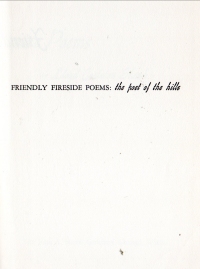 This book is a nice collection of poems from the middle part of the last century. The author has a pretty good sense of rhythm, the poems have end rhymes, and they’re nice short bits of Americana with an especial Christian sensibility. They cover things like the seasons, special events like Inauguration Day (Eisenhower, probably), and holidays. They’re about being neighborly and looking to God. The kind of thing that got published in newspapers in a bygone era, but never made it to the slicks or the anthologies.
This book is a nice collection of poems from the middle part of the last century. The author has a pretty good sense of rhythm, the poems have end rhymes, and they’re nice short bits of Americana with an especial Christian sensibility. They cover things like the seasons, special events like Inauguration Day (Eisenhower, probably), and holidays. They’re about being neighborly and looking to God. The kind of thing that got published in newspapers in a bygone era, but never made it to the slicks or the anthologies.


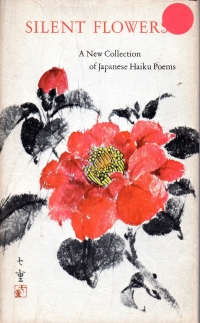
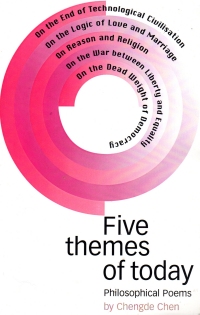
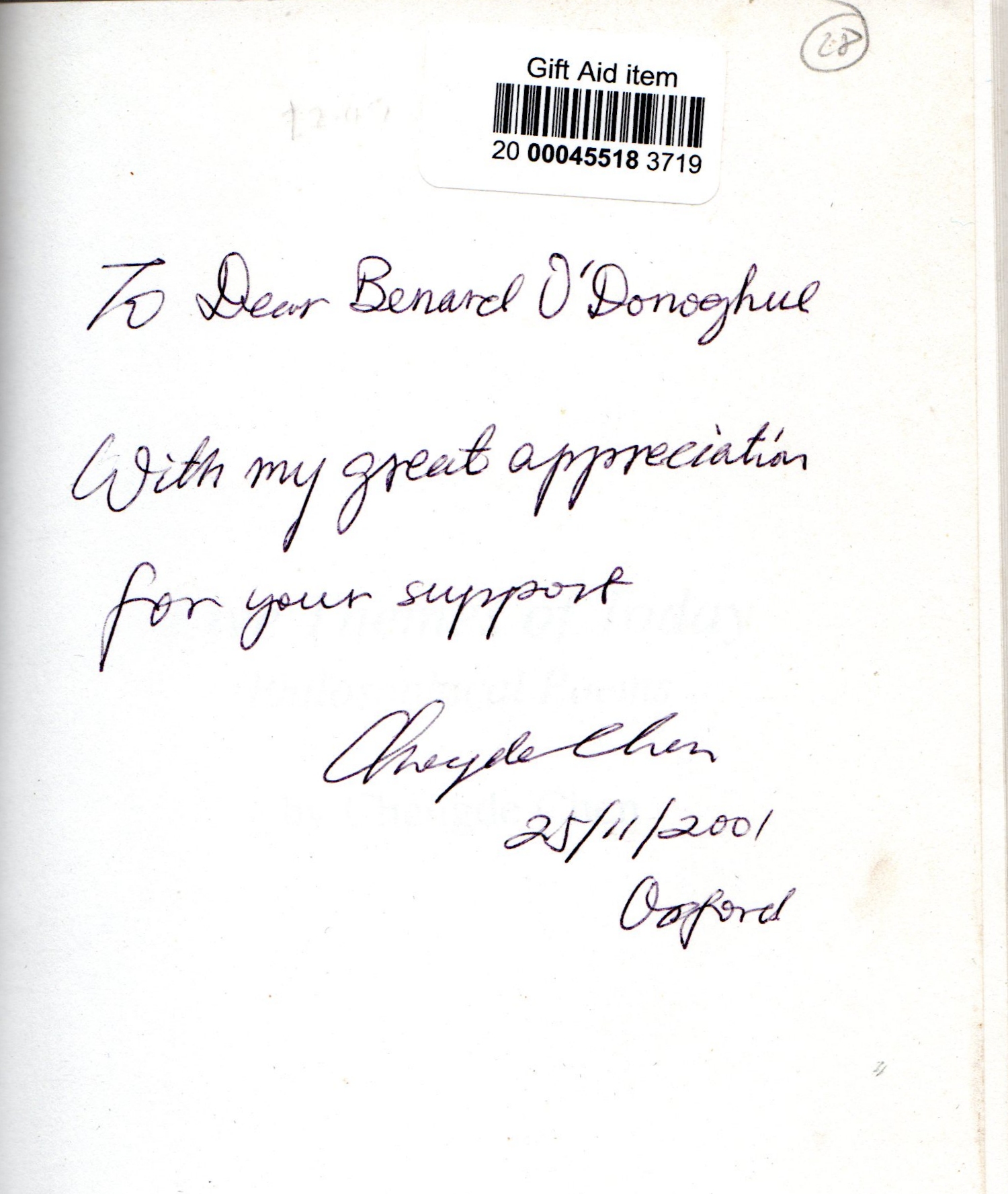
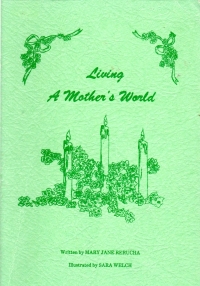
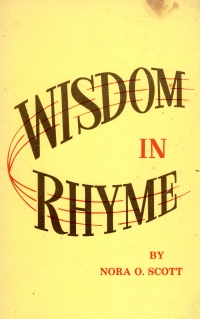
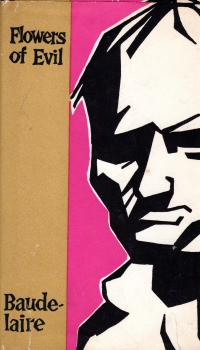

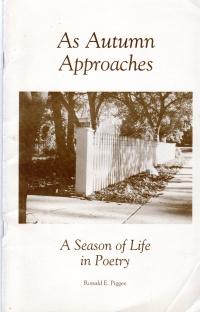 This book is a chapbook written by a Vietnam veteran, a black father in Nebraska in 1993. The poetry within ranges through a bunch of different styles, including free verse and at least one
This book is a chapbook written by a Vietnam veteran, a black father in Nebraska in 1993. The poetry within ranges through a bunch of different styles, including free verse and at least one 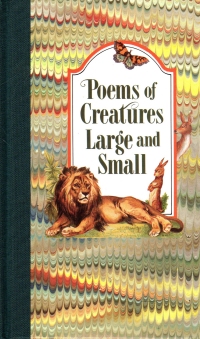
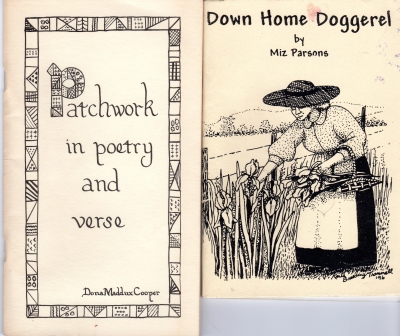
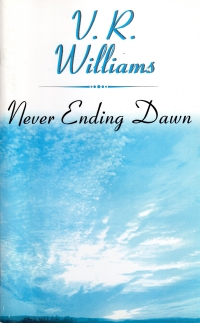 This is a small chapbook of religious-themed poetry. I’d assumed that the poet was a resident of Springfield, Missouri, since the publishing house is here in town, but I could be mistaken. The About the Author on the back indicates that the poet was originally from Tobago and was a school teacher in NYC. Searching briefly on her name on the Internet yields a lot of small businesses run by V.R. Williams. Trying the publishing house, Gilead Publishing, in the old search engine yields a number of results publishing religious-themed books much like this one. So I have no idea about the source of this particular book. You can’t buy it on Amazon. So I might have a real collectors’ item here.
This is a small chapbook of religious-themed poetry. I’d assumed that the poet was a resident of Springfield, Missouri, since the publishing house is here in town, but I could be mistaken. The About the Author on the back indicates that the poet was originally from Tobago and was a school teacher in NYC. Searching briefly on her name on the Internet yields a lot of small businesses run by V.R. Williams. Trying the publishing house, Gilead Publishing, in the old search engine yields a number of results publishing religious-themed books much like this one. So I have no idea about the source of this particular book. You can’t buy it on Amazon. So I might have a real collectors’ item here.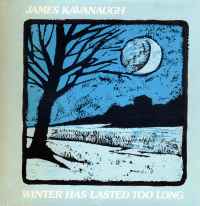
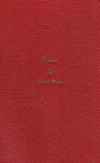 This book is a collection of poems by a religious housewife written in 1959 and 1960 in the Ozarks. It’s a regional book with probably no national distribution, but the woman (or her family) thought enough of them to publish them in hardback. The book includes some penciled or penned corrections and some poems cut and pasted onto blank pages at the end. It’s signed by the author, of course, but not inscribed, which means she might have given the book to someone she didn’t know. How odd.
This book is a collection of poems by a religious housewife written in 1959 and 1960 in the Ozarks. It’s a regional book with probably no national distribution, but the woman (or her family) thought enough of them to publish them in hardback. The book includes some penciled or penned corrections and some poems cut and pasted onto blank pages at the end. It’s signed by the author, of course, but not inscribed, which means she might have given the book to someone she didn’t know. How odd.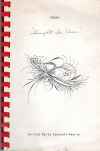 This is a chapbook from a little old lady who wrote poems about her home, her friends, and her family in the 1970s and 1980s. Its pages are typewritten (and, in some places, corrected with correction fluid and hand printing), and it’s bound by a comb binder, probably something provided by Kinko’s or the like (my chapbooks from five and six years later were saddle-stapled, which is a more professional look, I think, but this book might have been to thick for that treatment).
This is a chapbook from a little old lady who wrote poems about her home, her friends, and her family in the 1970s and 1980s. Its pages are typewritten (and, in some places, corrected with correction fluid and hand printing), and it’s bound by a comb binder, probably something provided by Kinko’s or the like (my chapbooks from five and six years later were saddle-stapled, which is a more professional look, I think, but this book might have been to thick for that treatment).